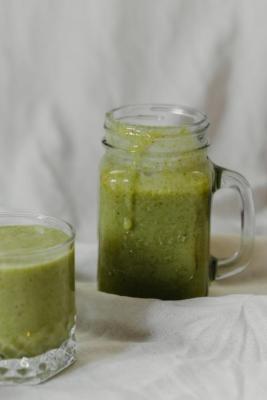The Future of Mental Health Is Not In Your Medicine Cabinet, It’s In Probiotics Called Psychobiotics
- nearly one in five U.S. adults live with a mental illness
- about 19.1% of U.S. adults had any anxiety disorder in the past year
- about 17.3 million adults in the United States had at least one major depressive episode, which is 7.1% of all U.S. adults.
- the number of college students with anxiety has doubled in the last 10 years
If you go to your doctor, there’s a good chance you’ll have a 5-minute conversation and leave with a prescription medication.
A pill for your mental woes?
Side effects like:
- Nausea and vomiting
- Weight gain
- Diarrhea
- Sleepiness
- Sexual performance problems
- Loss of libido
- Nausea
- Insomnia
- Blurred vision
- Headache
- Confusion
- Tiredness
- Nightmares
Some of these medications also have addictive or habit-forming qualities, which means you may need a higher and higher dose to get the same effect and they can be hard to stop taking once you’ve started, which isn’t often part of the discussion with your doctor going in. And it should be, because any treatment started by a doctor should involve informed consent. That means knowing how it can help you, but also knowing how it may hurt you.
Depression is not a deficiency of Zoloft or Prozac. Anxiety is not a deficiency of Xanax or Klonopin. Our pill-popping culture is obsessed with masking symptoms, but not treating root cause.
Clearly, there’s a real need for more, effective solutions without all the side effects.
Enter: Psychobiotics. The future of brain health and a solution that has the potential to replace medications entirely.
Meet psychobiotics: The future of mental health
If this is the first time you’re hearing the term “psychobiotics” I wouldn’t be surprised! It’s a very new area of study that’s exploring the possibility that certain probiotic bacteria may confer a mental health benefit by directly affecting your gut, the gut microbiome, and the types of postbiotic nutrients, including neurotransmitters, produced by your gut flora. This might sound a little “out there” but actually, it’s not.
Research in this area is becoming more robust by the day. Research shows not only that the diversity and abundance of gut bacteria affect overall health but that there is a direct, bidirectional communication between the brain and the gut, which is often called the gut-brain axis. According to a paper published in 2015, dysregulation in this axis — like what occurs when you develop a leaky gut — can lead to neuropsychological disorders. “For instance, altered microbiota has been linked to neuropsychological disorders including depression and autism spectrum disorder…” the authors wrote. Psychobiotics would get right to the root cause of many mental health issues, which is a leaky gut and chronic inflammation.
Leaky gut leads to an inflamed gut —> leaky gut ALSO leads to a leaky blood brain barrier (BBB) —> a leaky BBB leads to an inflamed brain —> an inflamed brain is a depressed and anxious brain.
But are psychobiotics really that effective? According to the small studies that have been done so far, YES. For example, one study showed that administration of the probiotic Lactobacillus rhamnosus to mice resulted in reduced anxiety- and depressive-like behaviors and long-term changes in the functioning of the central nervous system. In another study, women volunteered to drink a fermented milk product with a mixture of probiotics for 4 weeks. The results showed that the drink influenced brain activity in emotional centers. This can result in lower anxiety. Another study showed that consuming Bifidobacterium longum for four weeks reduced cortisol production in response to a stressor in addition to reducing subjective anxiety and daily stress. Finally, multiple studies have shown that certain bacteria can help reverse depression.





















